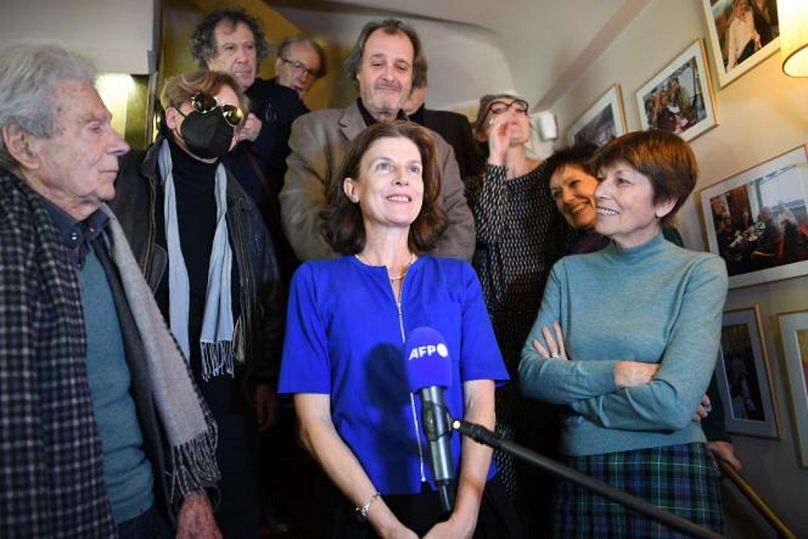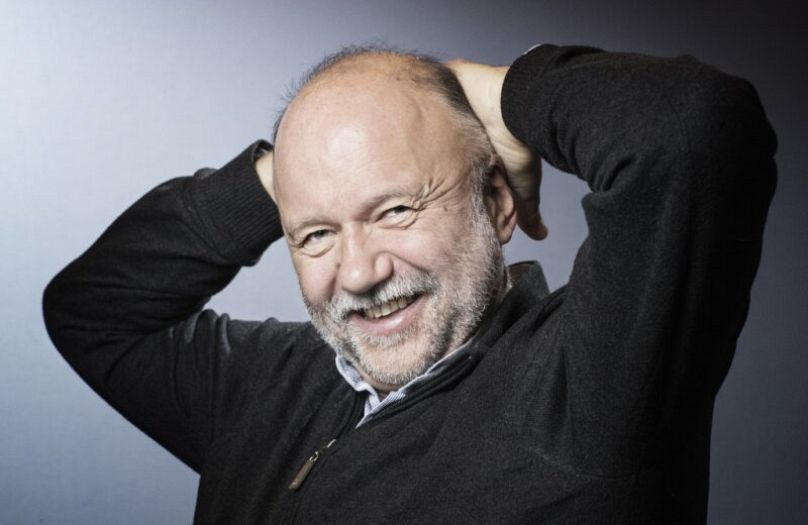Authors Emmanuelle Bayamack-Tam and Andreï Kourkov both receive Médicis Prizes
Emmanuelle Bayamack-Tam has been awarded this year’s prestigious literary prize Prix Médicis for French Fiction with her novel ‘La Treizième Heure’ (‘The Thirteenth Hour’), while Ukrainian author Andreï Kurkov has obtained the Médicis Prize for Foreign Fiction for 'Les Abeilles Grises' ('Gray Bees').
The Prix Médicis literary award, founded in 1958, is given each year in November to authors whose "fame does not yet match their talent.”
The 2022 winner for French Fiction, a 56-year-old French teacher, writes from the point of view of a teenager, Farah, and her family, invested in a church founded by the father. They meet and bond over poetry readings.
"I'm thrilled. I feel like I'm part of a lineage of authors that I love and value," she said, citing past winners such as Georges Perec, Mathieu Lindon and Marie Darrieussecq.
"It is a novel, of course, but I think it's also a tribute to poetry (...) I can only say again how proud I am to have won this beautiful prize."
Andreï Kourkov’s 'Gray Bees' is a novel about the absurdity of the conflict triggered by pro-Russian separatists in eastern Ukraine in 2014.
"A book about the situation in Ukraine has received such a big prize. It means that there will be more readers, that more people will think about what is happening in Ukraine," the Russian-speaking Ukrainian author told AFPTV.
"Ukraine remains a very important issue for the world,” the author continued. “It's not a story about the new escalations because I wrote the book in 2017. It's a human story about the people who live, about the war - it's not about the fighters, but I think the book explains a lot about the situation in Ukraine today."
“More people will think about what is happening in Ukraine, who will be interested and I think who will support our country so that it can remain independent and be part of the European Union, which is the dream of all Ukrainian youth."
The Médicis Prize for Essays was awarded to Georges Didi-Huberman for 'Le Témoin jusqu'au bout' and dedicated it to the German philologist Victor Klemperer, "a great philologist who chose to stay in Dresden" under Nazism to study the mutations of the German language in a totalitarian regime.
“Klemperer is someone who concerns us all the time, all the time, every day... Elon Musk... Whatever you like. This extraordinary man analysed the way in which a language can generate terror."
Other awards given out were the Jean Giono Prize, awarded to Sandrine Collette for 'On était des loups', about a man isolated in the mountains with his five-year-old son, and the the Castel Prize for Catherine Millet for 'Commencements', a personal retelling of the author’s beginnings in the contemporary art world.













